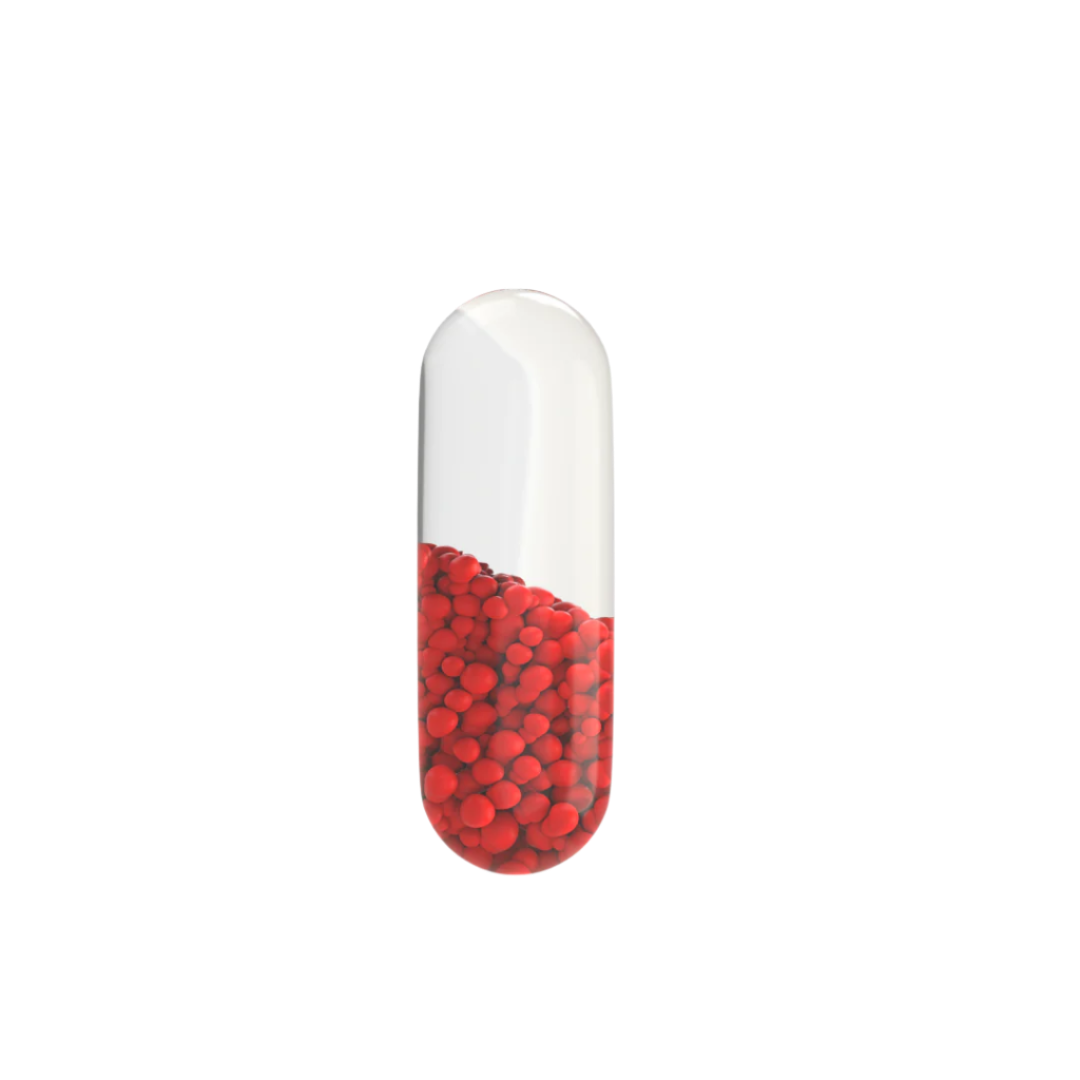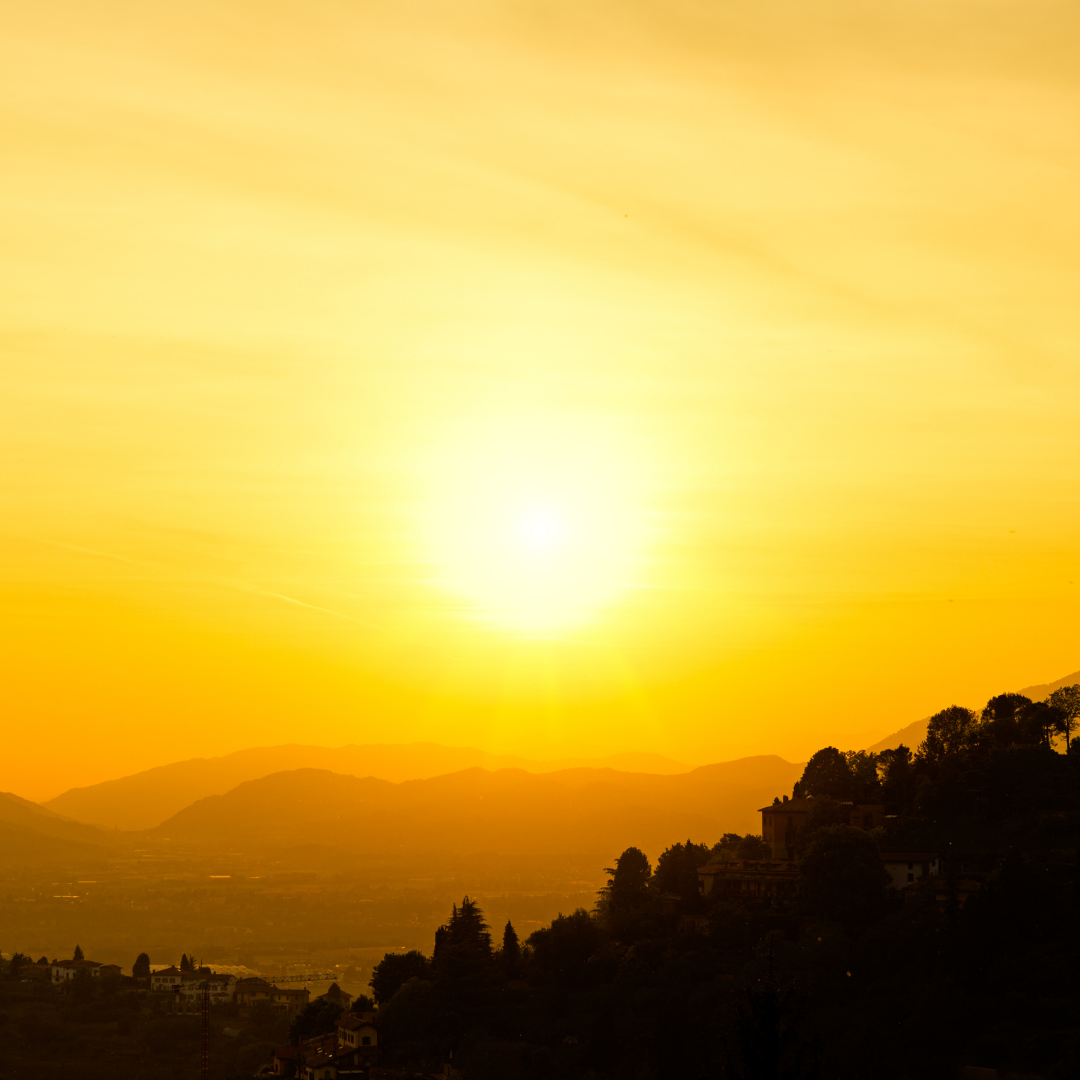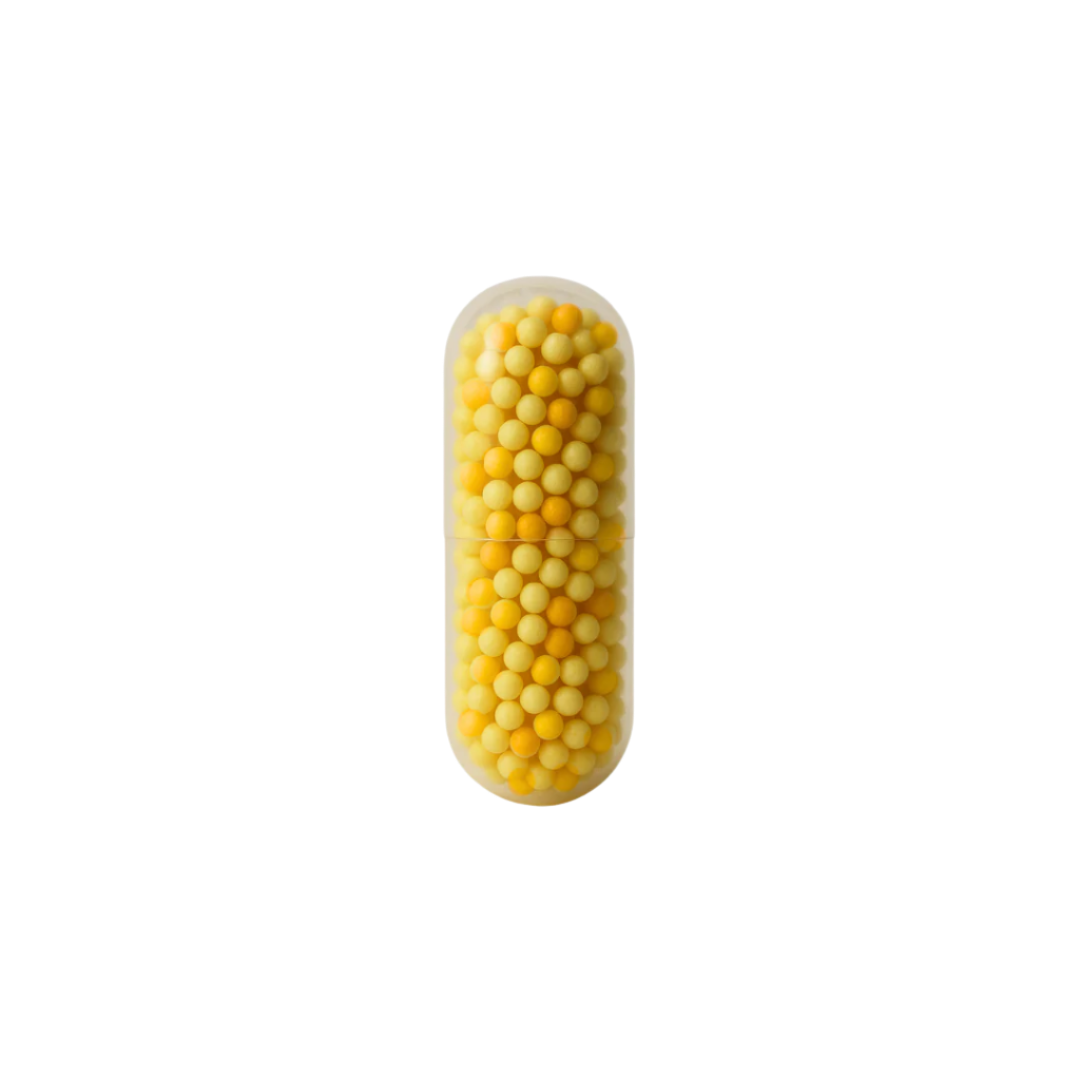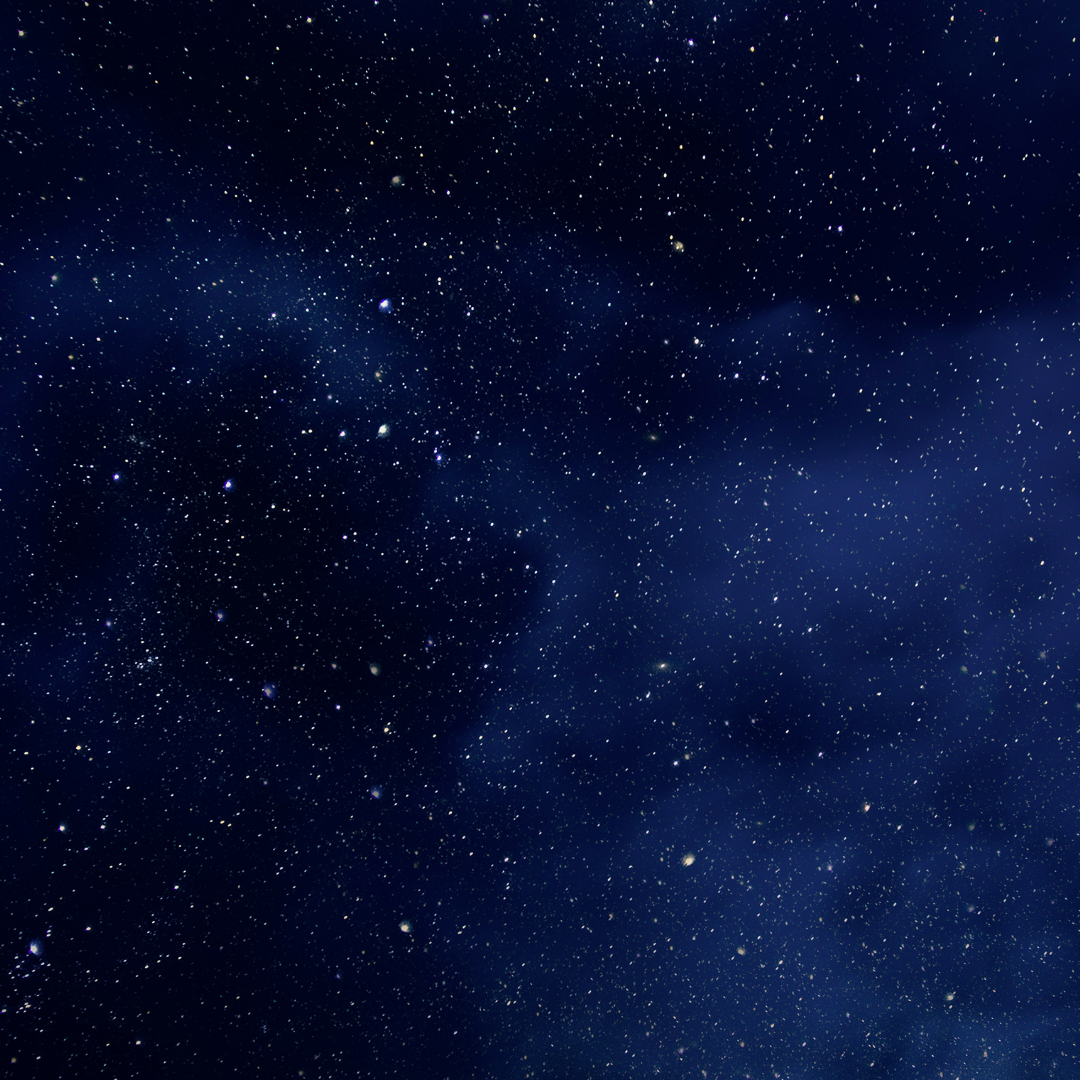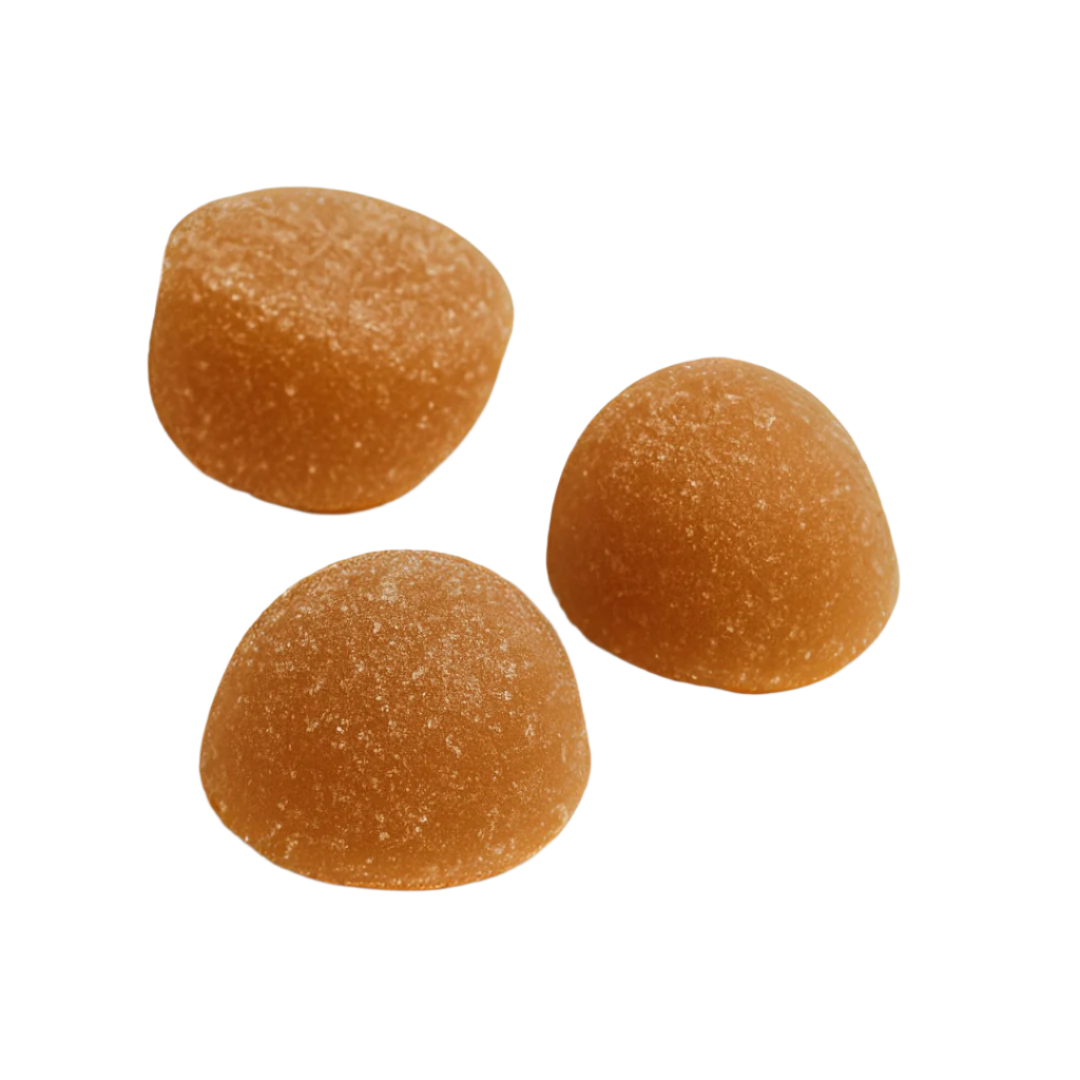11 Gesunde Alternativen zu Energydrinks
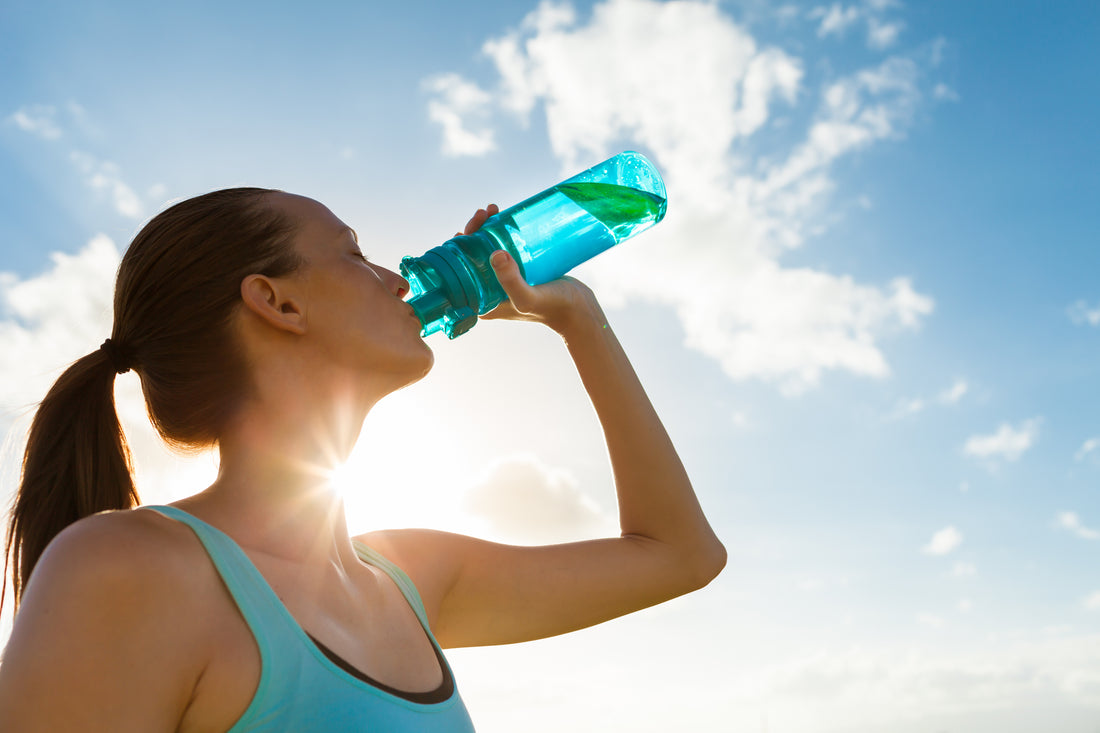
Wichtige Punkte
- Energydrinks können deine Energie steigern und deine Aufmerksamkeit verbessern. Sie können aber auch negative Nebenwirkungen haben, wie z. B. Nervosität und Schlaflosigkeit.
- Energydrinks enthalten große Mengen an Koffein. Deshalb solltest du darauf achten, dass du nicht mehr als die empfohlene Koffeinmenge von 400 mg zu dir nimmst.
- Es gibt viele Möglichkeiten, dir genug Energie zu geben, um den Tag zu überstehen, z. B. eine ausgewogene Ernährung, ausreichend Schlaf und viel Flüssigkeit.
- Wenn du eine trinkbare Alternative möchtest, solltest du Tee, Wasser, grüne Säfte und Eiweißshakes probieren, die alle einen gesundheitlichen Nutzen haben.
Energydrinks sind ein großes Geschäft. Die großen Marken sind alle bekannt, wie Red Bull, Monster und Rockstar. Die meisten Menschen haben schon ein oder zwei Energydrinks getrunken und nutzen sie für einen schnellen Energieschub, anstatt sich auf Kaffee zu verlassen. Ihr Geschmack kann auch dazu führen, dass du dich sehr erfrischt fühlst.
Allerdings gibt es eine versteckte Nebenwirkung, die Anlass zur Sorge gibt. In einem Artikel im British Journal of Nutrition wurde festgestellt, dass der Konsum von Energydrinks zwar die Leistung von Sportlern verbessern kann, aber auch negative Nebenwirkungen wie Schlaflosigkeit und Nervosität mit sich bringt [1]. Wer zu viele Energydrinks trinkt, kann sich auf Dauer müde und erschöpft fühlen.
Energydrinks: Wer trinkt sie?
Energydrinks sind seit Mitte der 1980er Jahre ein großes Geschäft und sind immer noch ein unglaublich schnell wachsender Markt. Es wird erwartet, dass der weltweite Umsatz mit Energydrinks bis Ende 2022 53,1 Milliarden Dollar erreichen wird. Das haben sie geschafft, indem sie sich einprägsame Slogans ausgedacht haben wie "Gives you wings" von Red Bull oder "Party like a Rockstar" von Rockstar.
Indem sie eine alternative Getränkewahl zu Kaffee anbieten, die einen schnellen Energieschub liefert und cool aussieht, haben sich die Hersteller von Energydrinks als feste Favoriten etabliert, vor allem in der Hauptzielgruppe der jungen Männer zwischen 18 und 34 Jahren.
Ein übermäßiger Konsum von Energydrinks kann jedoch schädlich für deine Ernährung sein. Wenn du einen Energydrink zu dir nimmst, solltest du dich nach gesünderen Möglichkeiten umsehen, um die Müdigkeit zu bekämpfen. Es gibt viele Alternativen, die dir einen natürlichen Energieschub geben oder dir helfen, konzentriert und wach zu bleiben.

Sind Energydrinks schlecht für dich?
Energydrinks können dir einen Energieschub geben, wenn du ihn wirklich brauchst. Sie können aber auch einen unnatürlichen Rausch auslösen, der verwirrend sein kann. Es gibt viele Gründe, den Konsum von Energydrinks einzuschränken. Der schwerwiegendste ist, dass sie die Gesundheit ihrer Konsumenten schädigen und viele von ihnen im Krankenhaus landen.
Im Jahr 2011 behauptete die Substance Abuse and Mental Health Services Administration, dass über 20.000 Besuche in der Notaufnahme in den USA im Zusammenhang mit Energydrinks standen [2]. 2019 fand eine Studie des Center for Science in Public Interest heraus, dass es in den USA seit 2004 34 Todesfälle im Zusammenhang mit dem Konsum von Energy Drinks gab [3]. Auch in Großbritannien gab es Todesfälle im Zusammenhang mit Energydrinks.
Energydrinks sind besonders bei jungen Menschen beliebt, die anfälliger für Süchte sind und viel mehr Koffein trinken, als sie sollten. Eine Studie im BMJ Open fand heraus, dass in Großbritannien 1 von 3 Kindern wöchentlich Energy Drinks trinkt [4].
Koffein kann von Vorteil sein, wenn es ab und zu konsumiert wird; wenn du jedoch gerne koffeinhaltige Getränke trinkst, solltest du die Menge begrenzen, die du zu dir nimmst. Die Mayo Clinic gibt an, dass du täglich nicht mehr als 400 mg Koffein zu dir nehmen solltest [5]. 400 mg entsprechen etwa acht Tassen Kaffee oder zehn Energydrinks à 100 mg.
Ein übermäßiger Koffeinkonsum kann viele negative Nebenwirkungen haben, die unter anderem die folgenden sind
- Kopfschmerzen
- Gereaiztheit
- Atemprobleme
- Durchfall
- Fieber
- Dehydrierung
- Schlafprobleme
- Schnelles Herzklopfen
- Nervosität
- Krämpfe
- Erhöhter Blutdruck

Was sind die Alternativen zu Energydrinks?
Um die negativen Nebenwirkungen von Energydrinks zu vermeiden, solltest du deinen Koffeinkonsum begrenzen und nicht zu viele Energydrinks kaufen oder trinken. Das heißt aber nicht, dass du dich den ganzen Tag über erschöpft fühlen musst, denn es gibt viele Möglichkeiten, deine Energie auf natürliche Weise zu steigern.
Wir haben einige ausgezeichnete Alternativen zu Energydrinks zusammengestellt, die dir helfen, dein Energieniveau zu halten und Müdigkeit zu bekämpfen, ohne potenziell gefährliche Energydrinks zu trinken.

Viele Menschen greifen morgens zu Energydrinks, wenn sie nicht genug Schlaf bekommen haben. Einer der Hauptgründe für den Konsum von Energydrinks während des Tages ist, dass sie nicht die richtige Menge an Schlaf bekommen, die ihr Körper braucht. Der NHS sagt, dass gesunde Erwachsene jede Nacht zwischen 7 und 9 Stunden schlafen sollten.
Eine der besten Möglichkeiten, um sicherzustellen, dass du dich am Morgen energiegeladen fühlst, auch wenn du nicht genug Schlaf bekommen hast, ist die Einnahme von B・SYNC ON. Diese klinisch erprobten Aufwach-Tabletten helfen dir, auf natürliche Weise aufzuwachen, heben deine Stimmung und sorgen für ein sanftes Aufwachen. Sie können dir so viel Energie geben, dass du keinen zusätzlichen Energieschub durch einen Energydrink brauchst. Und das Beste ist, dass die B・SYNC ON Tabletten nur aus natürlichen Inhaltsstoffen hergestellt werden, was sie 100% sicher und gesund macht. Zu den vier natürlichen Wirkstoffen gehören die Vitamine B5, B12, Zink und Koffein, die in einer Kapsel mit verzögerter Wirkstofffreisetzung enthalten sind.
Damit die Tabletten am besten wirken, nimmst du eine kurz vor dem Schlafengehen ein. In etwa 7 Stunden wirst du dann langsam wach. Nimm die Tabletten im Einklang mit deinem zirkadianen Rhythmus ein, um die besten Ergebnisse zu erzielen. Probiere B・SYNC ON noch heute aus und beginne deine Reise in ein Leben ohne Energydrinks!
2. Trinke Tee
Gebrühter Tee enthält weniger Koffein als Kaffee oder Energydrinks und ist damit das gesundheitsbewussteste Koffeingetränk. Einige Teesorten, wie Pfefferminze, Kamille und Ingwer, enthalten nicht einmal Koffein.
Grüner Tee ist ein großartiges Getränk, mit dem du Energydrinks ersetzen kannst. Er hat gesundheitliche Vorteile, wie z. B. ein geringeres Risiko für Herzkrankheiten und Krebs, und es gibt Hinweise darauf, dass grüner Tee deine geistige Klarheit und Leistungsfähigkeit verbessern kann. Er ist ein gutes Getränk für den ganzen Tag, egal ob du morgens oder abends einen Energieschub brauchst.
Pfefferminztee ist eine weitere gute Teealternative, die gut schmeckt und die Sauerstoffkonzentration im Gehirn fördern kann [6]. Ginsengtee ist eine weitere gute Option zum Stressabbau und bietet krankheitsbekämpfende Antioxidantien, während er gut schmeckt [7].
Ingwerwurzeltee ist eine weitere gesundheitsfördernde Alternative, denn er kann Krebs, Alzheimer und mehr vorbeugen [8]. Tees ohne Koffein geben dir vielleicht keinen sofortigen Energieschub, aber sie können dir helfen, dein Energieniveau den ganzen Tag über aufrechtzuerhalten, sodass du keinen Energydrink brauchst.
Koffeinhaltige Tees haben oft den gleichen Energieschub wie Kaffee und Energydrinks, aber mit viel weniger Koffein und ohne nervöse Nebenwirkungen. Du kannst Tee heiß oder kalt trinken, was die Vielfalt noch erhöht. Wenn du einen Tee nicht magst, kannst du immer einen anderen probieren.
3. Trink dein Wasser
Unterschätze niemals die einfachen Vorteile des Wassertrinkens. Einer der Hauptgründe, warum Menschen Energydrinks trinken, ist, dass sie durstig sind, und da ist es praktisch, einen zu trinken. Anstatt Geld für teure Energydrinks zu verschwenden, füllst du lieber eine Flasche Wasser ab und hast immer eine dabei, falls du Durst bekommst.
In einem Artikel der Nutrition Review heißt es, dass Dehydrierung dazu führen kann, dass sich dein Körper müde und erschöpft fühlt, was Menschen oft mit Müdigkeit verwechseln [9]. Bevor du einen koffeinhaltigen Energydrink trinkst, solltest du zuerst etwas Wasser trinken, um sicherzustellen, dass du nicht einfach dehydriert bist.
Man muss es nicht überbewerten, aber Wasser ist gut für deine Gesundheit. Der NHS empfiehlt, 6 bis 8 Tassen Wasser pro Tag zu trinken [10]. Wenn du dein Wasser etwas aufpeppen willst, kannst du immer etwas Obst hinzufügen und so etwas gesundes Vitamin B in deine Ernährung einbauen.

4. Nimm deine Vitamine
Wenn du das Gefühl hast, dass du regelmäßig müde bist, könnte ein Vitaminmangel vorliegen. Einige natürliche Vitamine und Mineralien wie Magnesium können deinem Körper helfen, Energie zu produzieren. Ein Magnesiummangel kann dazu führen, dass dein Körper müde wird.
In einem Artikel des Journal of Nutrition heißt es, dass Magnesium deinem Körper helfen kann, energieeffizienter zu arbeiten, was bedeutet, dass du für die gleiche Arbeit weniger Energie verbrauchst [11]. Wenn du genug Magnesium zu dir nimmst, brauchst du keine Energydrinks, um dich aufzupeppen, denn du hast einen Energieüberschuss. Zu den magnesiumhaltigen Lebensmitteln, die du probieren kannst, gehören dunkle Schokolade, Avocados, Tofu und Vollkornprodukte.
Vitamin B ist ein weiteres wichtiges Vitamin, das dir mehr Energie geben kann. In einem Artikel der Harvard Heath heißt es, dass ein Vitamin-B-Mangel dazu führen kann, dass du dich müde fühlst, Stimmungsprobleme hast und dich schlecht konzentrieren kannst [12]. Versuche, Lebensmittel wie Samen, Nüsse und mageres Fleisch zu essen, die alle reich an Vitamin B sind. Wenn du willst, kannst du ein Vitamin B- oder Magnesiumpräparat einnehmen.
5. Treibe etwas Sport
Einer der Gründe, warum Menschen Energydrinks trinken, ist, dass sie sich dadurch besser und produktiver fühlen; eine andere Möglichkeit, sich so zu fühlen, ist, sich ein wenig zu bewegen. Es muss nicht zu intensiv sein, da du sonst deine Energie verbrauchst, aber eine schnelle Einheit kann deinen Serotonin- und Endorphinspiegel ansteigen lassen [13]. Bewegung kann deine Stimmung, deine Wahrnehmung und deine Konzentration verbessern.
Laut NHS solltest du versuchen, jede Woche entweder 75 Minuten intensiven oder 150 Minuten moderaten Ausdauersport zu betreiben, um die Gesundheit deines Körpers zu erhalten [14]. Eine kurze Joggingrunde kann deinen Körper gesund halten und dich produktiver machen.

6. Trinke grüne Säfte oder Smoothies
Dunkelgrünes Gemüse wie Spinat, Grünkohl und Petersilie, das in grünen Säften verwendet wird, ist eine gute Quelle für organisches Vitamin B. Dein Körper braucht Vitamin B, um den Stoffwechsel aufrechtzuerhalten. Ein hoher Stoffwechsel bedeutet, dass dein Körper mehr Energie produziert.
Wenn du also grüne Säfte oder Gemüsesmoothies trinkst, kann dein Körper mehr Energie produzieren, die du anstelle eines Energydrinks nutzen kannst.
7. Nimm etwas Eiweiß zu dir
Ähnlich wie Dehydrierung zu Müdigkeit führen kann, kann auch ein Mangel an Eiweiß dazu führen, dass du dich müde und schwach fühlst. Eiweiß ist eine großartige Energiequelle, denn es versorgt deinen Körper mit Energie. Forscher aus Cambridge haben herausgefunden, dass Eiweiß deine Zellen besser anregt als Glukose[16].
Viele Lebensmittel, wie Fisch, Eier und Nüsse wie Mandeln, enthalten Eiweiß. Wenn du keine Lust auf einen Snack hast, kannst du dir auch einen Eiweißshake gönnen, der eine gute Energiequelle für unterwegs ist und viele Nährstoffvorteile bietet.
8. Nüsse essen
Nüsse wurden in diesem Artikel schon ein paar Mal als großartige Protein- und Vitamin-B-Quelle erwähnt. Sie gehören zu den nährstoffreichsten Lebensmitteln der Welt und stecken voller gesundheitlicher Vorteile. Sie sind sehr gut für eine ausgewogene Ernährung, da sie Kohlenhydrate, Fett und Eiweiß enthalten, die deinen Körper länger mit Energie versorgen können.
Eine Studie hat ergeben, dass Menschen, die häufig Nüsse essen, eine verbesserte Gehirnwellenfrequenz haben, die mit der Wahrnehmung in Verbindung gebracht wird [17]. Jede Nuss hat andere gesundheitliche Vorteile, deshalb solltest du überlegen, welche Nuss dir das bietet, was du brauchst. Eine Studie hat zum Beispiel herausgefunden, dass Walnüsse das Gedächtnis und die Lernfähigkeit verbessern können [18].

9. Nimm ein paar Beeren
Ähnlich wie Nüsse sind auch Beeren ein nährstoffreiches Lebensmittel. Sie enthalten viele Nährstoffe, die dir helfen, deine Energie zu behalten und dich langfristig besser zu fühlen. Wenn du den süßen Geschmack von Energydrinks magst, können Beeren eine gute Alternative sein, denn sie schmecken auch süß, aber natürlicher.
Sie sind eine gute Quelle für Ballaststoffe, die dir einen lang anhaltenden Energieschub geben können. Im Gegensatz zu Energydrinks bieten Beeren nicht nur einen unmittelbaren Nutzen, sondern können auch deine Gesundheit verbessern. Eine Studie fand heraus, dass Blaubeeren die Gesundheit der Blutgefäße verbessern [19].
10. Genieße ein paar Kohlenhydrate
Kohlenhydrate sind eine weitere Lebensmittelgruppe, die dir Energie liefern kann. Kohlenhydrate geben dir einen Energieschub und sorgen dafür, dass du den ganzen Tag über produktiv bist. Sie haben auch andere gesundheitliche Vorteile, die Energydrinks nicht bieten können.
Eine Studie hat herausgefunden, dass Kohlenhydrate deine Aufmerksamkeit und Wachsamkeit während des Tages verbessern. Kohlenhydrate können sehr hilfreich sein und deinen Bedarf an einer Energydrink-Alternative decken.
11. Mach ein Powernap
Wenn du die Zeit hast, kann ein kurzes Nickerchen dir helfen, die Müdigkeit zu überwinden. Selbst ein kleines zehnminütiges Nickerchen kann deine Wachsamkeit steigern und deine Müdigkeit lindern. Ein kleines Schläfchen kann den Adenosinspiegel deines Körpers auffüllen.
Adenosin ist die Chemikalie, die für die Schläfrigkeit verantwortlich ist. Wenn du deinen Körper zufriedengestellt hast, fühlst du dich vielleicht nicht mehr müde und brauchst keinen Energydrink mehr zu trinken.

Abschließende Überlegungen
Wenn du überlegst, Energy Drinks durch etwas Gesundes zu ersetzen, gibt es viele Alternativen für dich. Es gibt Getränke, Snacks und Aktivitäten, die dir ein ähnliches Energieniveau geben können wie Energydrinks.
Nicht alle Methoden sind für jeden geeignet. Du könntest zum Beispiel allergisch gegen Nüsse sein oder einen gesundheitlichen Grund haben, eine dieser Alternativen zu vermeiden.
Wähle eine Option, die dir Spaß macht und die zu deinem Lebensstil passt. Alle diese Alternativen sorgen dafür, dass du dich erfrischt, konzentriert und produktiv fühlst, ohne dass du einen koffeinhaltigen Energydrink brauchst. Diese Alternativen helfen dir, den Koffeinkonsum einzuschränken, was sich positiv auf deine Gesundheit auswirken kann.
Versuche, mehr Vitamine zu dir zu nehmen und dich ausgewogen zu ernähren, um langfristig davon zu profitieren. Halte gesunde Snacks wie Nüsse und Beeren bereit, damit du nicht in Versuchung gerätst, zu Energydrinks zu greifen. Wenn du auf der Suche nach einem Getränk bist, wähle einen Proteinshake, Tee, Wasser oder grünen Saft statt eines Red Bulls. Ich hoffe, diese Informationen haben dir geholfen, eine Alternative zu Energydrinks zu finden.
FAQs
Woher weiß ich, ob ich genug Schlaf bekomme?
Du bekommst genug Schlaf, wenn du morgens aufstehst, ohne von einem Wecker geweckt zu werden, keine dunklen Augenringe hast, die Nacht durchschläfst und tagsüber viel Energie hast.
Warum drücke ich immer auf "snooze"?
Es gibt einige Gründe, warum du die Schlummertaste drückst: Wenn du die Schlummertaste zu oft drückst, bekommst du wahrscheinlich nicht genug Schlaf, hast eine schlechte Schlafroutine oder bist nicht motiviert, den Tag zu beginnen.
Wie kann ich aufhören, nach dem Wecker zu schlafen?
Damit du nicht mehr durchschläfst, solltest du deinen Schlafrhythmus ändern, deine Ernährung verbessern, mehr Tageslicht bekommen und deine Schlafroutine verbessern, damit du leichter einschlafen kannst.
Ist es schlecht, sich von Weckern wecken zu lassen?
Das Aufstehen durch den Wecker kann dich stressen und aufschrecken, aber wenn du eine gute Schlafroutine hast, ist das nicht schädlich und kann dir helfen, den Tag zu einer vernünftigen Zeit zu beginnen.
Referenzen
- https://www.sciencedaily.com/releases/2014/10/141002084308.htm
- https://www.samhsa.gov/data/sites/default/files/DAWN126/DAWN126/sr126-energy-drinks-use.htm
- https://www.cspinet.org/news/documents-link-more-deaths-energy-drinks-20140625
- https://www.ucl.ac.uk/news/2022/feb/third-children-uk-drink-energy-drinks-weekly
- https://www.mayoclinic.org/healthy-lifestyle/nutrition-and-healthy-eating/in-depth/caffeine/art-20045678
- https://www.ncbi.nlm.nih.gov/pmc/articles/PMC3607906/
- https://www.ncbi.nlm.nih.gov/pmc/articles/PMC5628357/
- https://www.ncbi.nlm.nih.gov/pmc/articles/PMC8470323/
- https://www.ncbi.nlm.nih.gov/pmc/articles/PMC2908954/
- https://www.nhs.uk/live-well/eat-well/food-guidelines-and-food-labels/water-drinks-nutrition/
- https://academic.oup.com/jn/article/132/5/930/4687320
- https://www.health.harvard.edu/blog/vitamin-b12-deficiency-can-be-sneaky-harmful-201301105780
- https://centerforfamilymedicine.com/general-health/mental-health-benefits-of-exercise-what-are-endorphins-serotonin/
- https://www.nhs.uk/live-well/exercise/exercise-guidelines/physical-activity-guidelines-for-adults-aged-19-to-64/
- https://pubmed.ncbi.nlm.nih.gov/19997003/
- https://faseb.onlinelibrary.wiley.com/doi/abs/10.1096/fasebj.31.1_supplement.636.24
- https://pubmed.ncbi.nlm.nih.gov/25024344/
- https://pubs.acs.org/doi/abs/10.1021/acs.jafc.8b03201?journalCode=jafcau#

